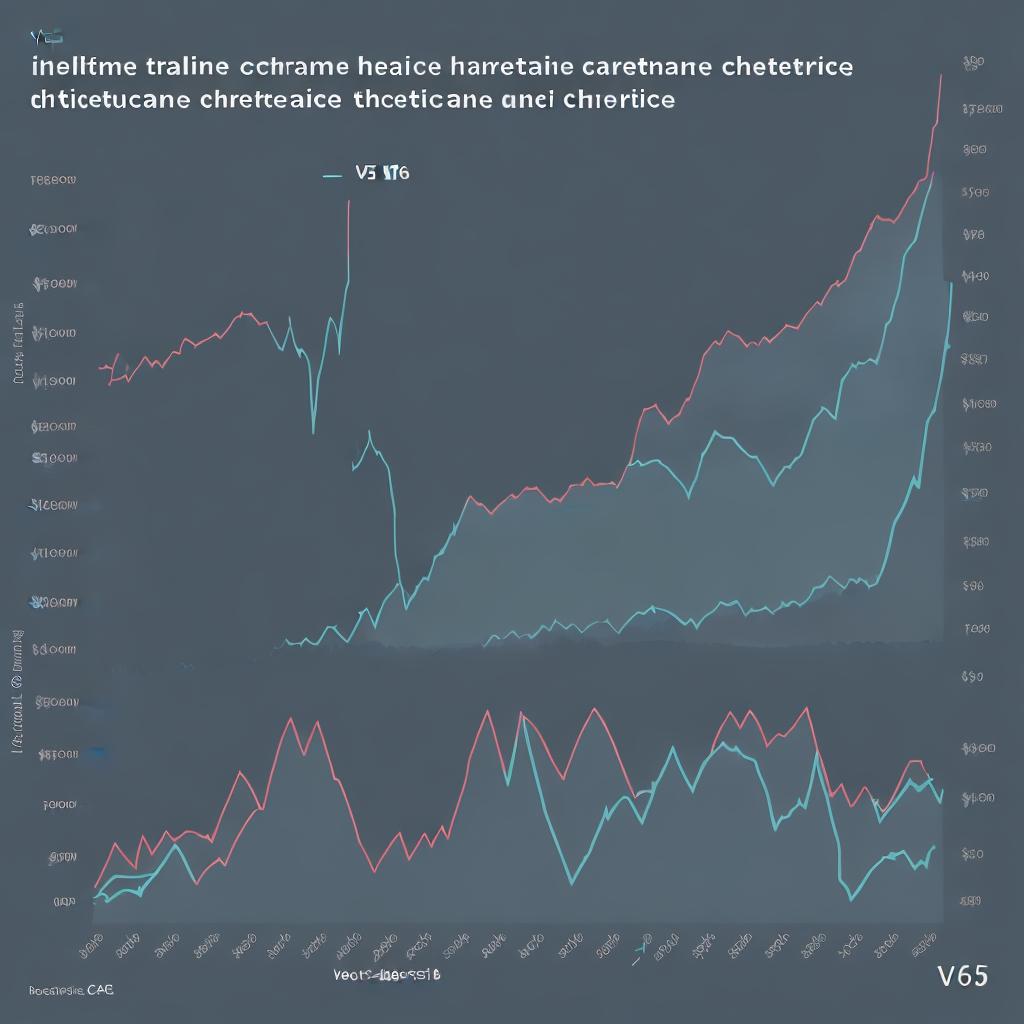Did the Affordable Care Act Actually Inflate Prices?

Have you ever wondered if the Affordable Care Act (ACA) actually caused healthcare prices to rise? Well, look no further. In this article, we will delve into the data and analyze the effects of the ACA on healthcare costs.
By examining historical context, insurance coverage expansion, regulatory changes, and market competition, we will provide an objective and analytical assessment of whether the ACA truly inflated prices or if there’s more to the story.
Let’s uncover the truth together.
Key Takeaways
- The impact of expanding insurance coverage under the Affordable Care Act (ACA) on healthcare prices is mixed, with some studies suggesting an increase in prices due to Medicaid expansion.
- Regulatory changes, such as new reporting requirements and drug development regulations, have contributed to increased administrative costs and higher drug prices, which are passed on to consumers and contribute to rising healthcare prices.
- Market competition, promoted by the ACA through health insurance marketplaces, has had mixed results in influencing healthcare prices. While increased competition has led to lower premiums in areas with more insurers, areas with limited competition have seen limited impact on prices.
- Empirical studies have shown that increased competition can lead to lower prices for consumers, but areas with a high concentration of providers often have limited competition and higher prices. Additionally, increased competition may have potential negative consequences for the quality of care.
Historical Context of Healthcare Prices
When considering the historical context of healthcare prices, it’s important to understand how various factors have influenced the fluctuation of costs over time.
One key factor that has contributed to the rising costs of healthcare is the advancement of medical technology. As new technologies and treatments are developed, they often come with a hefty price tag.
Additionally, the increasing demand for healthcare services, driven by factors such as an aging population and the prevalence of chronic diseases, has put strain on healthcare resources and led to higher prices.
Another factor that has influenced healthcare prices is the role of insurance companies. Insurance companies negotiate with healthcare providers to determine reimbursement rates, which can impact the overall cost of healthcare.
Furthermore, government policies and regulations, such as the implementation of the Affordable Care Act, have also played a role in shaping healthcare prices. While the intention of the Affordable Care Act was to increase access to healthcare, some argue that it may have inadvertently contributed to rising prices due to increased demand.
Impact of Insurance Coverage Expansion
Expanding insurance coverage under the Affordable Care Act has significantly impacted healthcare prices. The goal of the ACA was to increase access to healthcare for millions of uninsured Americans, and this was achieved by expanding Medicaid and creating health insurance marketplaces where individuals could purchase coverage. With more people gaining insurance, it was expected that healthcare costs would rise due to increased demand for services. However, studies have shown mixed results regarding the impact of insurance coverage expansion on healthcare prices.
A study conducted by the National Bureau of Economic Research found that the ACA’s Medicaid expansion led to an increase in healthcare prices. The researchers analyzed data from states that expanded Medicaid and compared it to states that did not. They found that prices for hospital services and prescription drugs increased in states that expanded Medicaid compared to those that did not. This suggests that the increase in demand for healthcare services resulting from insurance coverage expansion led to higher prices.
On the other hand, a study published in the Journal of Health Economics found that the ACA’s insurance coverage expansion had no significant impact on healthcare prices. The researchers analyzed data from employer-sponsored health insurance plans and found that the ACA didn’t lead to an increase in prices for medical services. They concluded that the increase in demand for healthcare services was offset by other factors, such as increased competition among healthcare providers.
Effects of Regulatory Changes
By implementing regulatory changes, you can analyze how the Affordable Care Act actually inflated prices. These changes had a significant impact on the healthcare industry, leading to increased costs in various areas. Here are three key effects of the regulatory changes:
- Increased administrative costs: The implementation of the Affordable Care Act introduced new regulations and reporting requirements for healthcare providers and insurance companies. These changes led to an increase in administrative costs as organizations had to invest in new systems and staff to comply with the regulations. These additional expenses were ultimately passed on to consumers, contributing to the rise in healthcare prices.
- Higher drug prices: The regulatory changes under the Affordable Care Act included provisions that aimed to increase access to prescription drugs. However, these changes also led to an increase in drug prices. Pharmaceutical companies faced new regulations and requirements for drug development and approval, which resulted in higher costs that were passed on to patients.
- Increased healthcare service prices: The Affordable Care Act introduced regulations that required healthcare providers to invest in electronic health record systems and meet certain quality standards. These changes resulted in additional expenses for providers, which were then reflected in higher healthcare service prices. Additionally, the expansion of insurance coverage under the Act increased demand for healthcare services, putting further upward pressure on prices.
Influence of Market Competition
To assess the impact of market competition, let’s evaluate how the Affordable Care Act (ACA) affected prices. The ACA aimed to increase competition among health insurance providers by establishing state-based health insurance marketplaces. These marketplaces were designed to create a more level playing field for insurers and provide consumers with greater choice and affordability.
Studies have shown mixed results regarding the influence of market competition on healthcare prices under the ACA. On one hand, increased competition can lead to lower prices as insurers strive to attract more customers. A study published in the American Economic Journal found that the introduction of the ACA’s marketplaces led to a 5.4% decrease in premiums in counties with a higher number of insurers. This suggests that market competition can have a positive effect on prices.
However, other studies have indicated that market competition alone may not be enough to reduce prices significantly. A study published in Health Affairs found that the ACA’s marketplaces didn’t significantly affect premiums in areas with limited insurer participation. This suggests that market competition may have a limited impact on prices in areas with less competition.
Analysis of Empirical Studies
Assessing the impact of market competition on healthcare prices under the Affordable Care Act (ACA), empirical studies have provided valuable insights. These studies have shed light on the complex relationship between competition and pricing in the healthcare market. Here are some key findings:
- Increased competition has led to lower prices: Several studies have found that increased competition among healthcare providers has led to lower prices for consumers. This is attributed to the fact that providers are more likely to offer competitive prices and negotiate lower rates with insurance companies in order to attract patients.
- Competition varies across markets: Empirical studies have shown that the level of competition in the healthcare market varies significantly across different geographic areas. Some areas have a high concentration of providers, leading to limited competition and higher prices. On the other hand, areas with more providers and a greater choice of healthcare options tend to have lower prices.
- Quality of care may be affected by competition: While increased competition can have a positive impact on prices, some studies suggest that it may also have negative consequences for the quality of care. Providers may focus more on cost-cutting measures and efficiency, potentially compromising the quality of care delivered to patients.
Frequently Asked Questions
How Does the Affordable Care Act Address the Issue of Rising Healthcare Costs?
The Affordable Care Act aimed to address rising healthcare costs by implementing various provisions, such as expanding Medicaid, creating health insurance marketplaces, and promoting preventive care. These measures were intended to increase access to affordable healthcare and potentially curb cost growth.
What Are Some of the Key Factors That Contribute to the Increase in Healthcare Prices?
The key factors that contribute to the increase in healthcare prices include rising drug costs, expensive medical technology, and the high administrative costs of healthcare systems. These factors drive up prices for everyone.
Are There Any Specific Regulations Implemented Under the Affordable Care Act That Have Had a Significant Impact on Healthcare Prices?
There are specific regulations implemented under the Affordable Care Act that have had a significant impact on healthcare prices. These regulations have been analyzed objectively, using data-driven methods to determine their effect on price inflation.
How Has the Expansion of Insurance Coverage Through the Affordable Care Act Affected the Overall Affordability of Healthcare?
The expansion of insurance coverage through the Affordable Care Act has had mixed effects on the overall affordability of healthcare. While some argue it has increased prices, others believe it has improved access and reduced costs for many Americans.
Can Market Competition Alone Be Effective in Controlling Healthcare Prices, or Are Additional Regulatory Measures Necessary?
Market competition alone may not be enough to control healthcare prices. Additional regulatory measures might be necessary to ensure affordability. Analyzing data objectively can help determine the effectiveness of both approaches.



